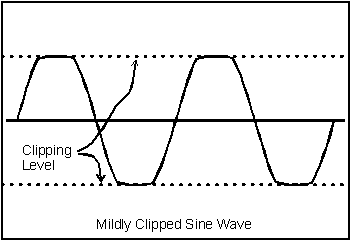Hi.
For starters, a speaker doesn't clip. Clipping is electrical phenomonon, so only analog connections in your system can clip. So if you're using HDMI/Optical, the digital output of your BDP can't clip. The preamplifier in the reciever can clip, but it should at least be matched to drive the amplifiers to full power. The amplifiers are the most likely culprit for clipping.
What does clipping sound like? It's tough to say. First I guess you have to define clipping. Is it the rise from 0.1% Total Harmonic Distortion to 1%? A lot of places consider a 1%THD signal to be the beginning of what looks like a "clipped (flattened)" crest of the given audio signal.

Now the above, might be perceived as "conjestion". Things that at lower listening levels seem to sound like different distances and volume levels, appear to come closer and closer together. You also start to hear harmonics. 1% THD means that harmonic frequencies of the fundamental sound (in the source material) are 40db lower, while accepted values of 0.1% THD have harmonics which are 60db lower How audible is such a harmonic? I think it would depend on the actual content we listen to, and the order of the harmonic itself. It's often easy for us to not notice a 2nd order harmonic distortion, because a lot of instruments and voices have a decent amount of 2nd harmonics already, and nothing seems "wrong". Different amps have different harmonic distortion profiles, and generally higher orders are more separated in frequency from the fundamental. It's not often that you hear a 500hz harmonic accompany a 100hz fundamental, so it's easier for us to isolate such a harmonic as distortion. A 5th harmonic at 0.5% distortion might be more audible than a 2nd harmonic at 5% THD!!!
All of the above is talking about amplifiers though...
Unfortunately what goes unmentioned is that your speakers produce all sort of distortion of their own, especially as heat goes up. Even if your amplifier isn't clipping, your speakers may sound just as offensive as clipping.
So how do you hear if your amp is clipping? You don't. You just play the numbers and feed it enough headroom to drive it to your desired peak scenario listening levels, and then go on to worry about the real problems, the loudspeaker itself; and its interaction with the room.
When in doubt, try to have enough headroom to drive your speakers to 100+db peaks at your distance based on the spec sheet (sensitivity, impedance/phase, and amplifier power at 0.1% THD) but realistically speaking your speakers will inevitably compress the signal unless they are very good and very dynamic.
The difference between an 86db/2.83v/m sensitive 4 ohm speaker and a 92db/2.83v/m sensitive 8 ohm speaker is HUGE. To get to 100db at 8 feet away, the first needs more than 300W into 4 ohms and the latter only needs about 40w into 8 ohms!
Now 100db is loud and you might not ever have dynamic peaks that loud if you don't listen to dynamic music - I'm just sayin. Compressed music at 75db might only have peaks at 85db.
Then again, some music itself can be clipped!!